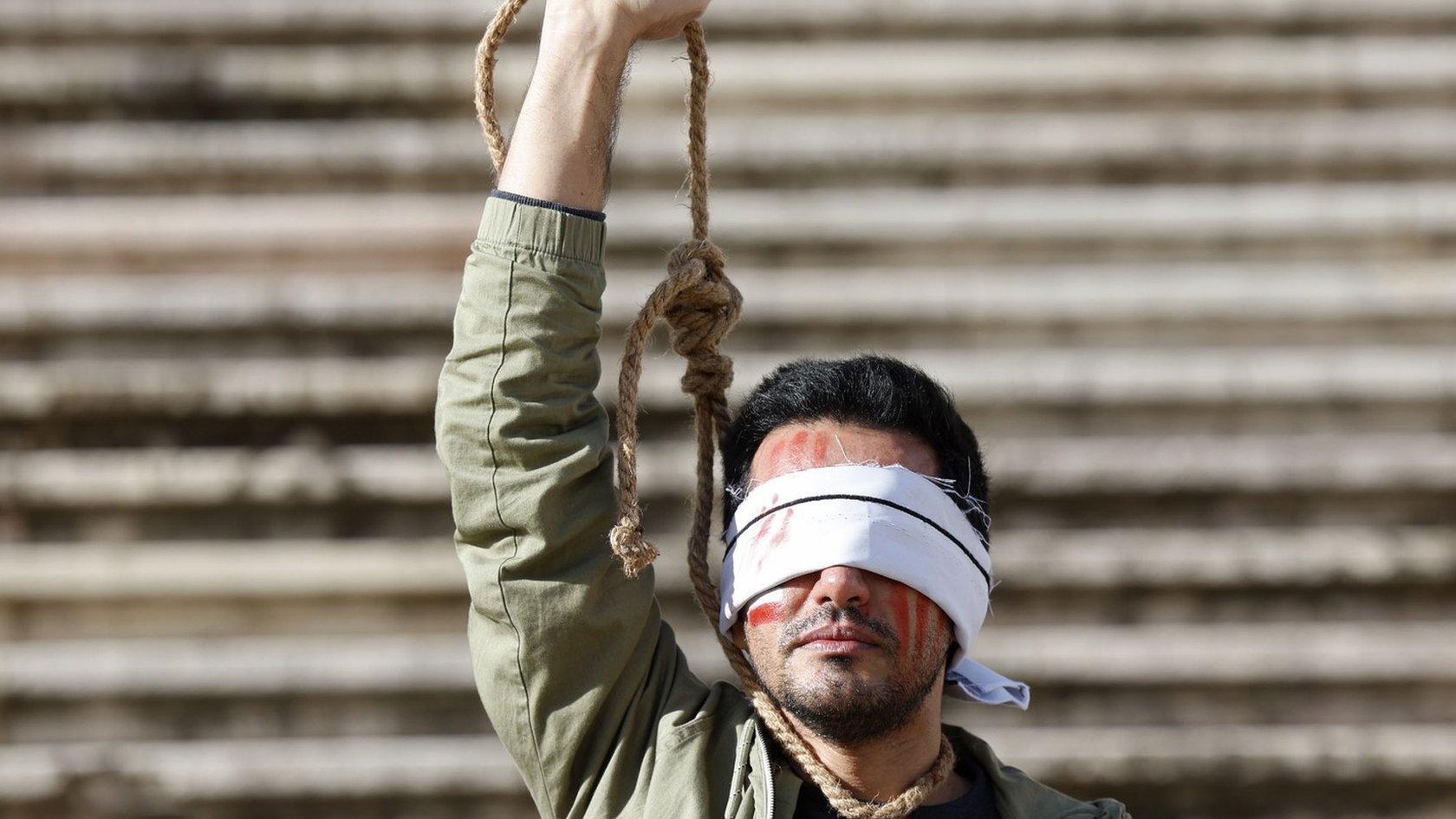Iran on Saturday said that it has executed the head of a network that trafficked Iranian women to neighboring countries, according to The Independent.
The country's judiciary said that Shahrooz Sakhnoori, a man known by his alias “Alex” was the leader of a trafficking ring that sent Iranian girls and women across the border.
Reuters reported that Sakhnoori was executed on Saturday morning “for the crime of human trafficking for the purpose of prostitution”.
Local media reported that “Alex” had been captured in Malaysia in coordination with Interpol and transferred to Iran in 2020. He was sentenced to death in September 2021.
This comes as authorities executed three men in connection with last year’s antigovernmental protests on Friday. The three were convicted over their alleged involvement in a shooting attack that killed three security personnel in Isfahan in November.
Majid Kazemi, 30, Saleh Mirhashemi, 36, and Saeed Yaqoubi, 37 were executed on Friday.
Local reports said that crowds had gathered outside the prison where they were being held on Thursday night as rumours of their imminent executions grew.
Meanwhile, Amnesty International has said that the three were subjected to unfair trials and allegedly tortured. Four other protesters have been hanged since December.
Several others have reportedly been sentenced to death or charged with capital offences over the anti-regime protests.
Mahmood Amiry-Moghaddam, the director of the Norway-based group Iran Human Rights (IHR) tweeted that the latest executions “must have serious consequences” for Tehran or dozens of “other protesters will be in danger”. He added: “We must make the Islamic republic leaders understand that execution of protesters will not be tolerated.”
Nationwide protests began in Iran last year in September after 22-year-old Iranian Kurdish woman Mahsa Amini died while in the custody of Iran’s “morality police”.
Iran is one of the world’s leading executioners. At least 582 people were executed in 2022, up from 333 the previous year. The surge in executions, including for drug violations and vague charges of “enmity against God” and “spreading corruption on earth,” has drawn criticism from UN officials and human rights activists.










Trackbacks and Pingbacks